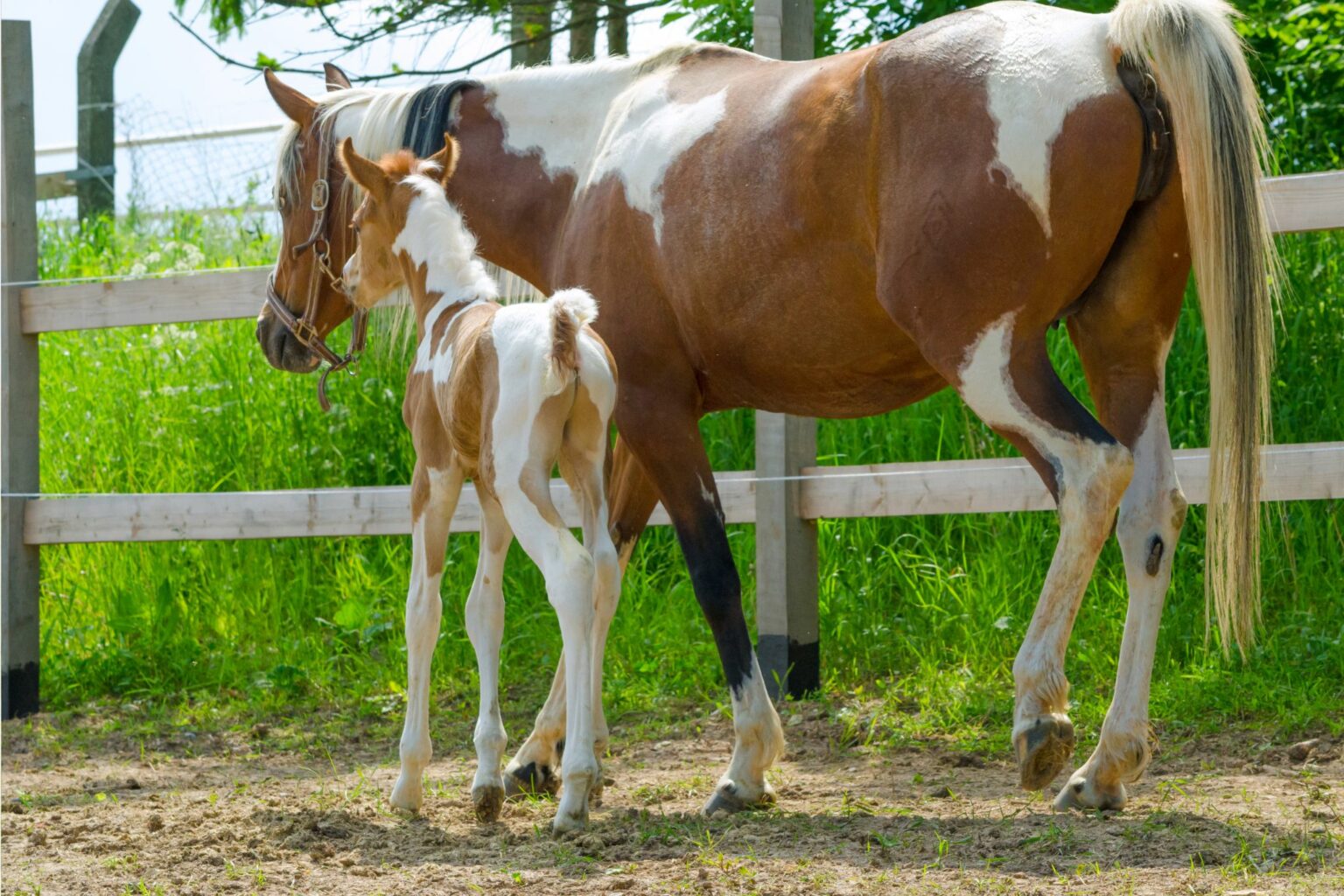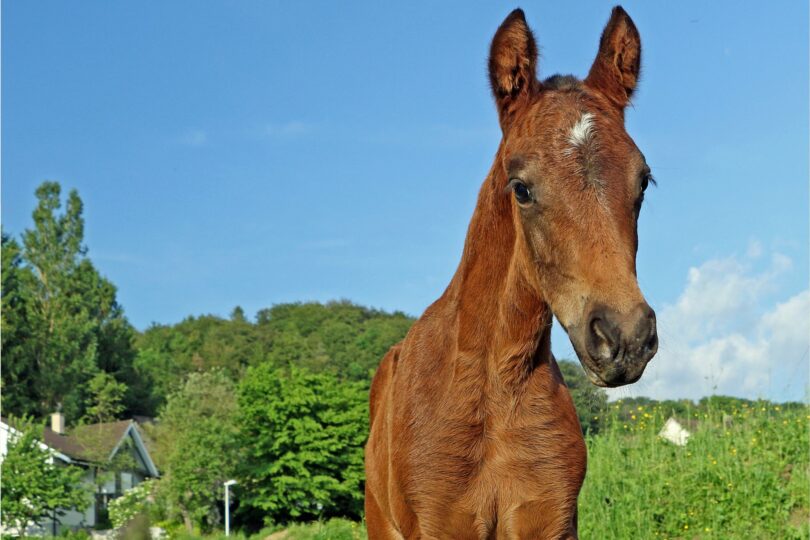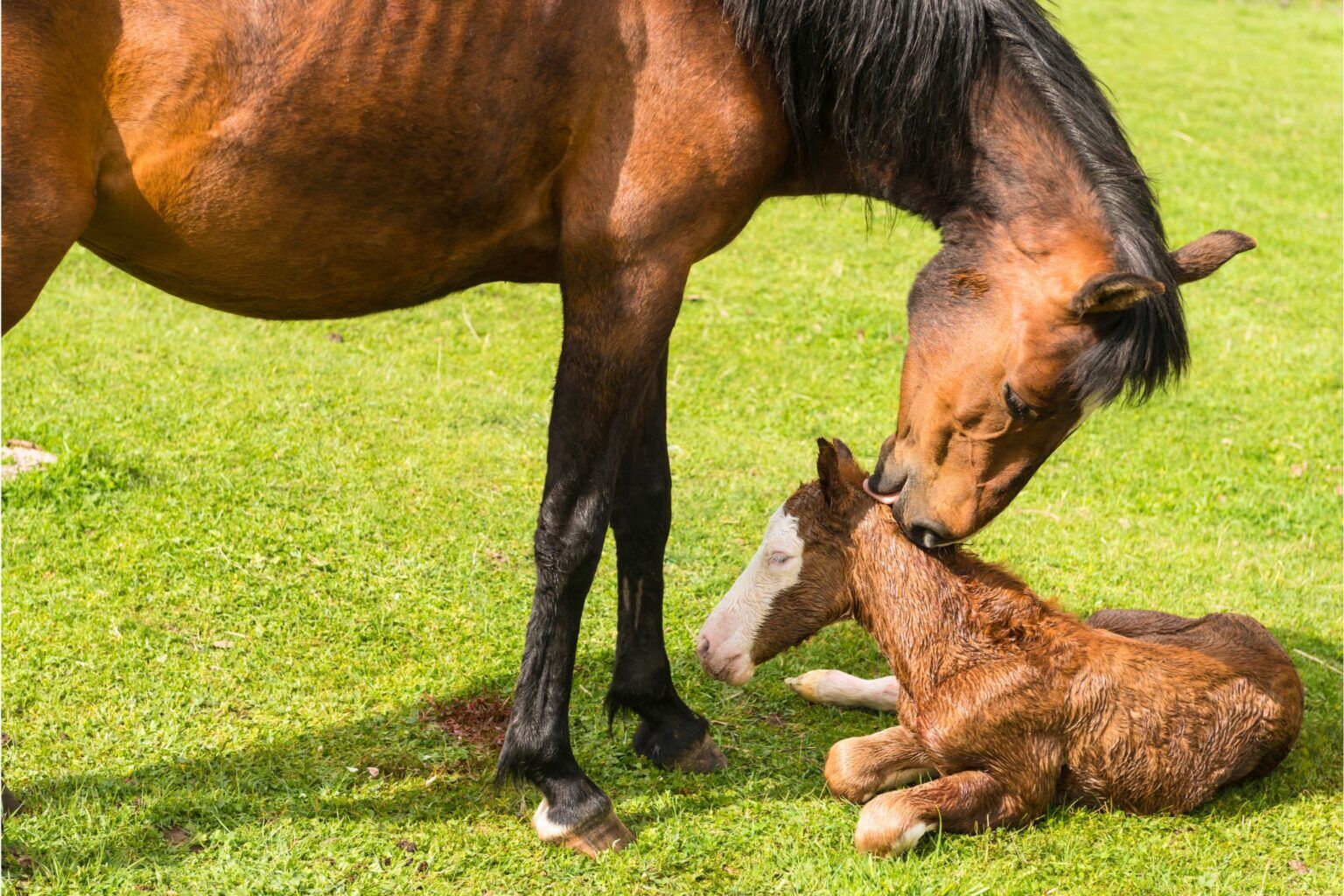Newborn Horse Weight: A Comprehensive Guide To Foal Birth Weight And Development
Have you ever wondered how much a newborn horse weighs? If you're a first-time horse owner or breeder, understanding the birth weight of foals is crucial for their health and development. From the moment they're born, a foal's weight can tell you a lot about their overall well-being. Let's dive into the fascinating world of newborn horses and explore everything you need to know about their weight and growth journey.
Let's be honest, when most people think about horses, they imagine majestic creatures galloping through open fields. But what happens behind the scenes, especially when a foal is born? Understanding the weight of a newborn horse is more than just curiosity—it's a key factor in ensuring the foal has a healthy start in life. Whether you're a seasoned horse breeder or just starting out, this guide will cover everything you need to know.
From the moment a foal takes its first breath, its weight plays a significant role in determining its health. This isn't just about numbers; it's about understanding the science behind equine development. So, buckle up and get ready to learn some incredible facts about newborn horse weight that might surprise you!
Read also:Chloe Reyes The Rising Star Breaking Barriers In The Spotlight
What is the Average Weight of a Newborn Horse?
When it comes to newborn horse weight, the average foal typically weighs between 90 and 120 pounds (about 41 to 54 kilograms). However, this can vary depending on the breed and size of the mare. Larger breeds like draft horses tend to have heavier foals, while smaller breeds like Arabians or ponies usually produce lighter ones. The key takeaway here is that there's no one-size-fits-all answer, but most foals fall within this range.
Here's a quick breakdown:
- Draft horse foals: 120-150 pounds
- Thoroughbred foals: 90-110 pounds
- Pony foals: 60-90 pounds
Keep in mind that these numbers are just averages. Factors such as the mare's health, nutrition, and genetics also play a significant role in determining the weight of her foal.
Factors That Influence a Foal's Birth Weight
Now that we know the average weight of a newborn horse, let's explore the factors that influence it. A foal's birth weight isn't just random; it's influenced by a variety of factors, including:
1. Breed of the Mare
Different horse breeds have different average weights. For example, a draft horse foal will naturally be heavier than a miniature horse foal. The breed of the sire (father) also plays a role, but the mare's size tends to have a more significant impact.
2. Mare's Nutrition During Pregnancy
The health and nutrition of the mare during pregnancy are crucial. Mares that receive proper nutrition are more likely to produce healthy, well-developed foals. On the flip side, mares that are malnourished or stressed may give birth to underweight foals.
Read also:Belly Buster Subs Toronto The Ultimate Guide To Torontos Hearty Sandwiches
3. Gestation Period
Most horses have a gestation period of about 11 months. However, if the foal is born prematurely, it may weigh less than average. Conversely, foals born after a longer gestation period may weigh more.
Understanding Foal Growth Patterns
Once a foal is born, its weight will change rapidly as it grows. In the first few weeks of life, foals gain weight at an astonishing rate—sometimes up to 2-3 pounds per day! This rapid growth is essential for their development and overall health.
Here's a rough timeline of foal growth:
- Week 1: Gains 2-3 pounds daily
- Month 1: Reaches approximately 20% of adult weight
- Month 6: Reaches about 65% of adult weight
Monitoring a foal's weight and growth pattern is crucial for identifying any potential health issues early on. If a foal isn't gaining weight as expected, it could be a sign of an underlying problem that needs attention.
How to Measure a Foal's Weight
Measuring a foal's weight isn't as straightforward as stepping on a scale. Since foals are often too young or too large to fit on a regular scale, horse owners use special methods to estimate their weight. One common method is using a weight tape, which wraps around the foal's girth to provide an estimate based on circumference.
Why Accurate Weight Measurement Matters
Knowing a foal's weight is important for several reasons:
- Ensuring proper nutrition
- Monitoring growth and development
- Determining medication dosages
Without accurate weight measurements, it's difficult to make informed decisions about a foal's care. This is especially important for newborns, who are more vulnerable to health issues.
Health Concerns Related to Foal Weight
While most foals are born healthy and grow at a normal rate, there are some health concerns related to weight that horse owners should be aware of. For example, foals that are significantly underweight or overweight may face developmental challenges.
1. Underweight Foals
Underweight foals may struggle to gain strength and energy, making them more susceptible to illness. Common causes of low birth weight include:
- Premature birth
- Poor maternal nutrition
- Genetic factors
2. Overweight Foals
On the other hand, overweight foals can also face health issues. Excessive weight gain during the first few months of life can lead to joint problems and developmental orthopedic diseases (DOD). This is why it's important to maintain a balanced diet and monitor growth carefully.
Feeding and Nutrition for Newborn Foals
Nutrition is one of the most important factors in a foal's growth and development. In the first few weeks of life, a foal gets most of its nutrition from the mare's milk. However, as the foal grows, it will need additional sources of nutrition to support its rapid growth.
1. Mare's Milk
For the first few months, a foal's primary source of nutrition is its mother's milk. Mare's milk is packed with essential nutrients that help the foal grow strong and healthy. It's important to ensure the mare is well-nourished so she can produce high-quality milk for her foal.
2. Introducing Solid Food
As the foal gets older, it will start to show interest in solid food. Around 2-3 months of age, you can begin introducing high-quality hay and grain. This helps the foal transition from milk to a more varied diet.
Common Myths About Newborn Horse Weight
There are several myths and misconceptions about newborn horse weight that can lead to confusion among horse owners. Let's debunk a few of them:
Myth 1: All Foals Weigh the Same
This is far from the truth. As we've discussed, foal weight varies significantly based on breed, genetics, and other factors. Assuming all foals weigh the same can lead to incorrect assumptions about their health.
Myth 2: Bigger is Always Better
While a larger birth weight might seem like a good thing, it's not always ideal. Overweight foals can face health challenges, as mentioned earlier. The key is finding the right balance for healthy growth.
Expert Tips for Monitoring Foal Weight
As a horse owner or breeder, there are several steps you can take to ensure your foal is growing at a healthy rate:
- Regularly monitor the foal's weight using a weight tape or scale
- Consult with a veterinarian to establish a baseline for healthy growth
- Provide a balanced diet that meets the foal's nutritional needs
- Keep an eye out for any signs of illness or developmental issues
By staying proactive and informed, you can help ensure your foal grows into a strong, healthy horse.
Conclusion: The Importance of Understanding Newborn Horse Weight
In conclusion, understanding how much a newborn horse weighs is crucial for their health and development. From breed and nutrition to growth patterns and health concerns, there are many factors to consider when it comes to foal weight. By monitoring your foal's weight and providing proper care, you can help them grow into a strong, healthy adult horse.
So, what's the next step? If you're a horse owner or breeder, take the time to learn more about foal weight and development. Share this article with others in the horse community, and don't hesitate to reach out to a veterinarian if you have any questions or concerns. Together, we can ensure every foal gets the best start in life!
Oh, and one last thing—don't forget to leave a comment below if you found this article helpful. Your feedback means a lot to us!
Table of Contents
- What is the Average Weight of a Newborn Horse?
- Factors That Influence a Foal's Birth Weight
- Understanding Foal Growth Patterns
- How to Measure a Foal's Weight
- Health Concerns Related to Foal Weight
- Feeding and Nutrition for Newborn Foals
- Common Myths About Newborn Horse Weight
- Expert Tips for Monitoring Foal Weight
- Conclusion: The Importance of Understanding Newborn Horse Weight


